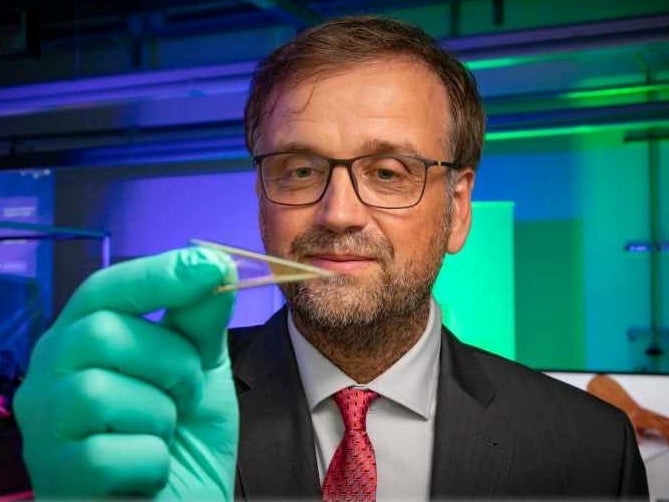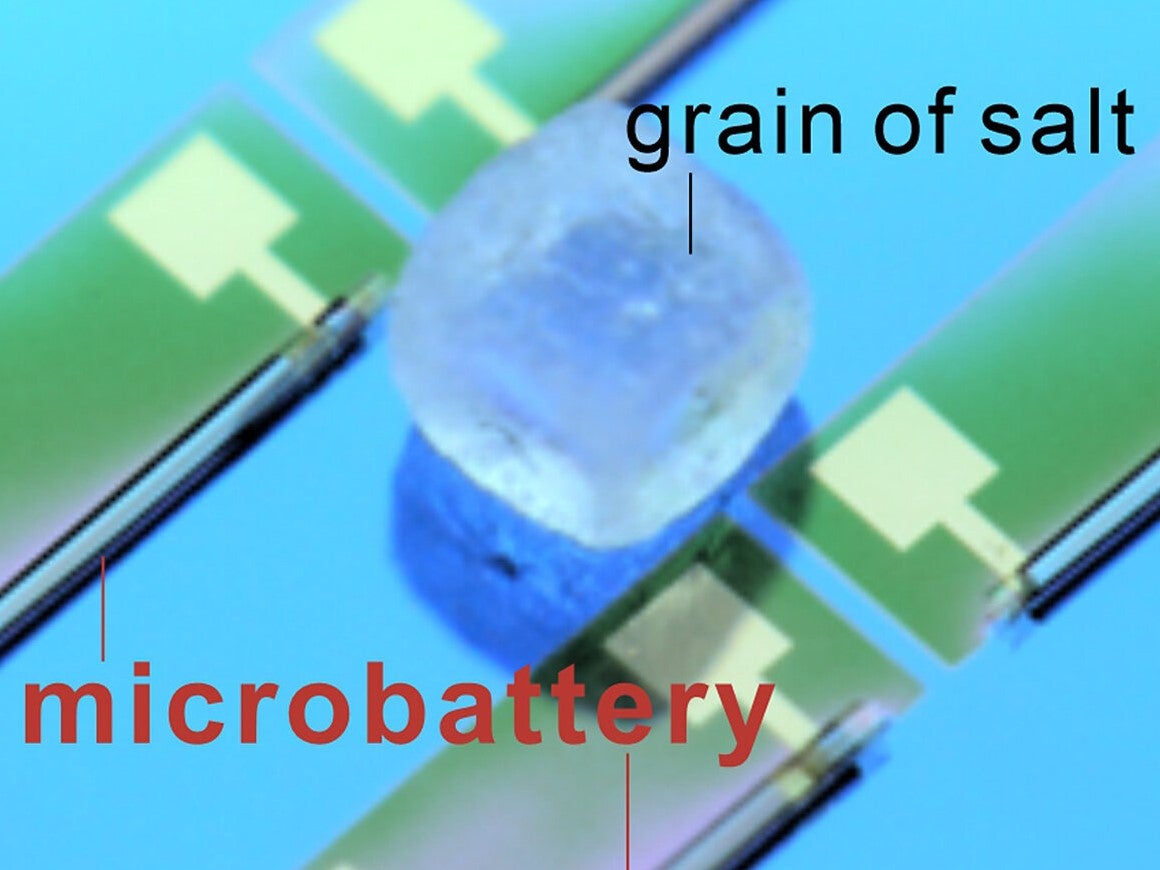Scientists make world’s smallest battery – for computers the size of a speck of dust
Scientists say new technology could power a new era of ‘ubiquitous computing’

Scientists have created the world’s smallest battery, capable of powering computers that are the size of a speck of dust.
The breakthrough could enable a new-generation of wearables, medical implants and other microelectronics, which until now have been held back by limitations to battery size.
In a new study titled ‘On-Chip Batteries for Dust-Sized Computers’, researchers from the Chemnitz University of Technology in Germany detailed how the tiny battery could push forward the miniaturisation of electronics and create an environment for “ubiquitous computing”.
The research, published in the journal Advanced Energy Materials, made use of a technique called the Swiss-Roll process to create the microscopic batteries, allowing them to significantly improve on the energy capacity of current micro-batteries that use a stacking technique.
“An on-chip self-assembly process, known as micro-origami, is employed to transform thin film stacks to micro-Swiss rolls,” the study explained.
“After the roll-up of the battery, the available chip area is efficiently used to accommodate a compact and fully integrated 3D microsystem.”
The battery is fully rechargeable and is able to power microcomputers for up to 10 hours, though there is no word yet on when they will be ready for market.
“Dust-sized computers will only become a new class of computing platform if they are available anywhere, anytime, relying on energy-autonomous operation,” the study said.

Professor Oliver Schmidt from the Chemnitz University of Technology said: “There is still a huge optimization potential for this technology, and we can expect much stronger micro-batteries in the future.”
The latest development comes just a couple of months after researchers at MIT figured out how to make the world’s longest battery, measuring 140 metres.
The proof of concept, described in the journal Materials Today in December, could theoretically be used to build much longer batteries up to 1 kilometre in length.
Join our commenting forum
Join thought-provoking conversations, follow other Independent readers and see their replies
Comments
Bookmark popover
Removed from bookmarks